I backpacked across Europe for 2 weeks and slept on trains and in budget Airbnbs. 10 things surprised me about this type of travel.
Joey Hadden

- I spent two weeks backpacking through Europe in 2022 and was surprised by my experiences.
- Backpacking through Europe wasn't the glamorous, romantic adventure it looks like on Instagram.
In October 2022, I took a two-week backpacking trip through Europe, where I slept in shared train cabins and budget Airbnbs.
I backpacked across Germany, Austria, Italy, and Switzerland for two weeks. It was my first time visiting each country and backpacking in Europe.
There were a lot of surprises that made me realize backpacking is about more than just a fun adventure, from hardships to hidden gems.
While I always thought it sounded like a cool experience, traveling with just a backpack never appealed to me before 2022.
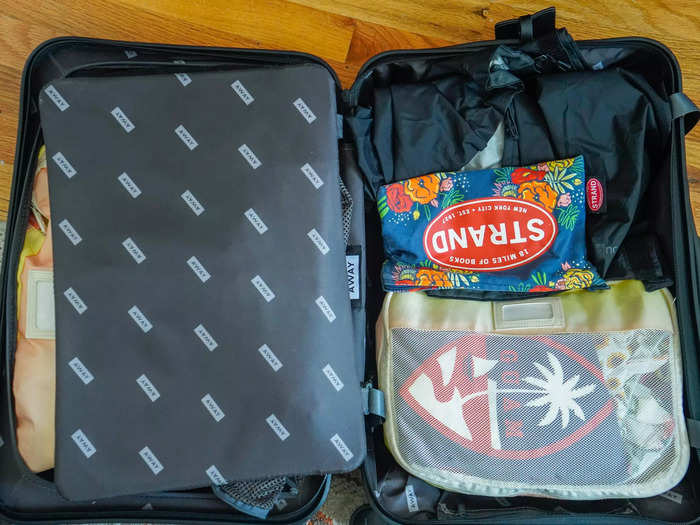
When I was younger, I preferred to pack liberally with all the outfit combinations I could dream up for that perfect Instagram shot right at my fingertips.
Since I began traveling more in 2022, backpacking has felt like my best option to have less stuff to worry about losing.
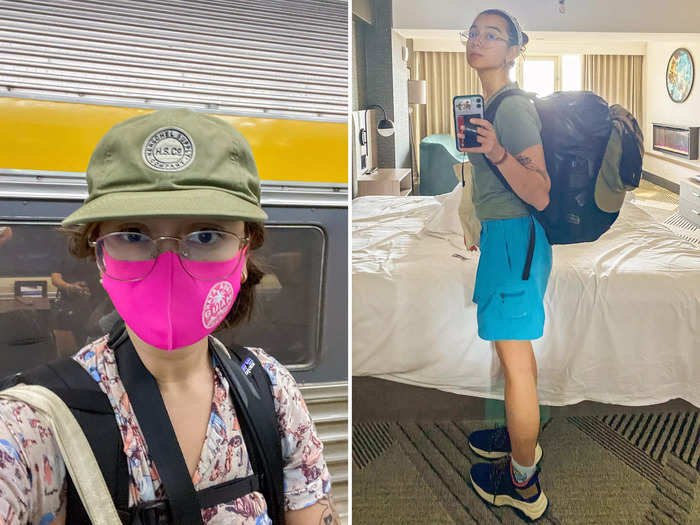
In August 2022, I spent a week backpacking for the first time through Eastern Canada and realized the minimalist travel style was much more attainable than I'd originally thought.
So when I planned a two-week train trip through four European countries two months later, I decided to push myself to fit everything I needed into my backpack again.
Unfortunately, I found that backpacking through Europe wasn't as romantic as it often seems through photos on my Instagram feed. But I did learn a thing or two along the way.

From young adults describing their ideal gap year to college students recapping their summer, "backpacking through Europe" is a phrase I've heard since I was a kid to describe a DIY trip with just a backpack.
In these conversations, aspiring backpackers said they longed for an experience they were confident would set them free.
On social media, I often see epic photos of an empty nature scene, save for the backpackers and the turtle shell on their backs, with a caption about life being an adventure.
For one thing, I was surprised that I could fit everything I needed for two weeks in just one bag.
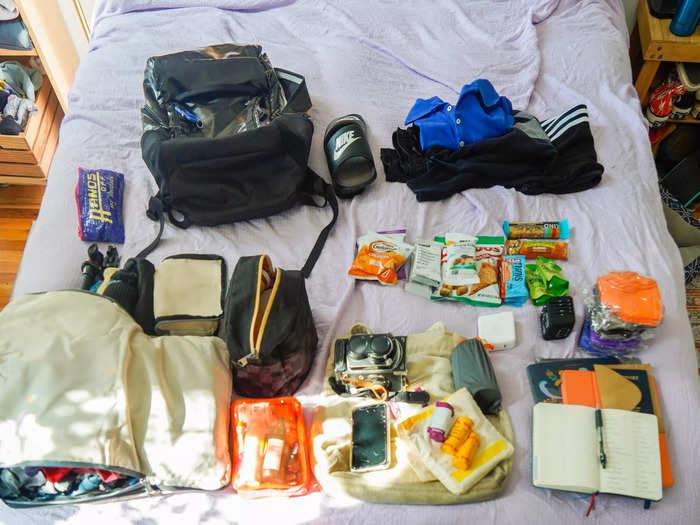
I was surprised to find I had everything I needed.
To accomplish this, I picked the largest bag I own — a 32-liter backpack — for my two weeks in Europe.
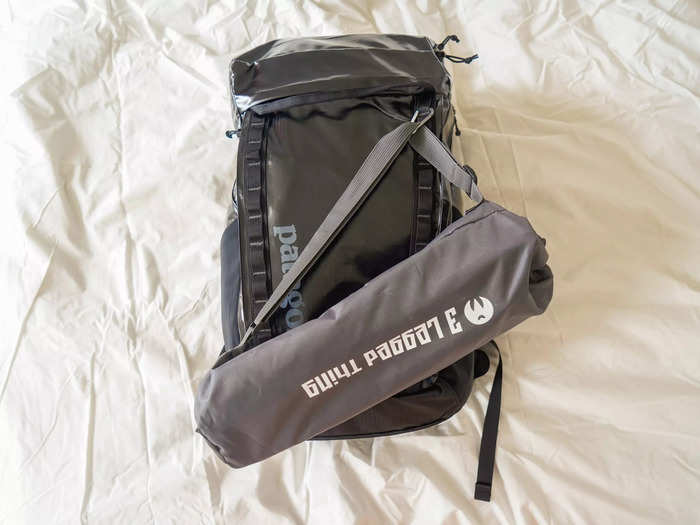
I used the same backpack for my week trip to Canada and stuffed it to the brim, so I wasn't sure if I'd be able to make it work for a more extended trip.
Then, I practiced packing as lightly as possible — twice — before I left to ensure I could fit everything. My work gear and other essentials took priority over extra clothes.
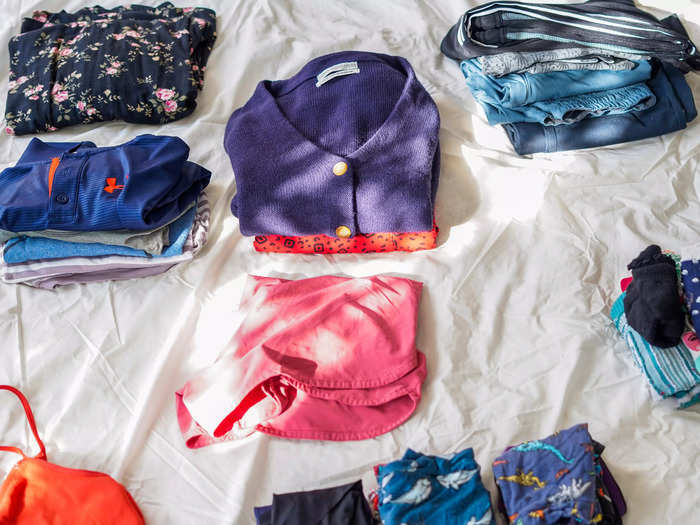
I started with my work gear, which included a laptop, cameras, lenses, and a notebook.
Then I packed other essentials like chargers, toiletries, and snacks.
I also stuffed a packing cube with two polos, one T-shirt, one long-sleeve T-shirt, three pairs of pants, a sweater, a blazer, a dress, and two light jackets.
Once it came time to gear up for real, I was pleasantly surprised that I could pack lighter than I ever had before and still have all I needed for the longest trip I'd ever taken.
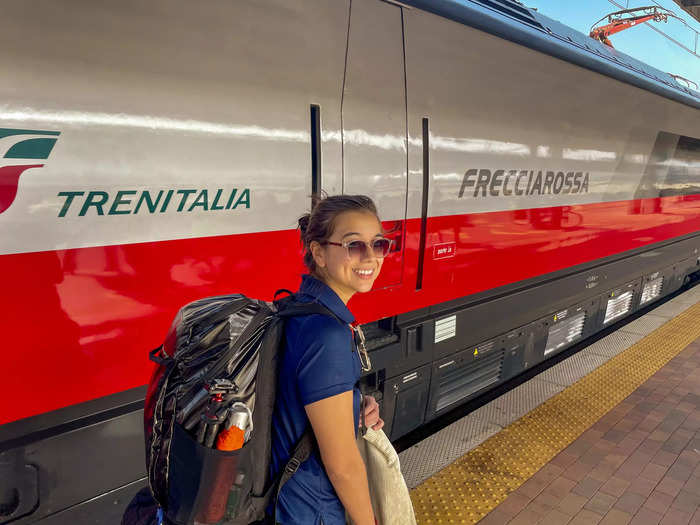
While I longed for more outfit variety on my trip, I was surprised that I had everything I needed despite packing lighter than ever.
I also didn't expect to use my iPad every day, but it surprisingly brought me a lot of comfort.
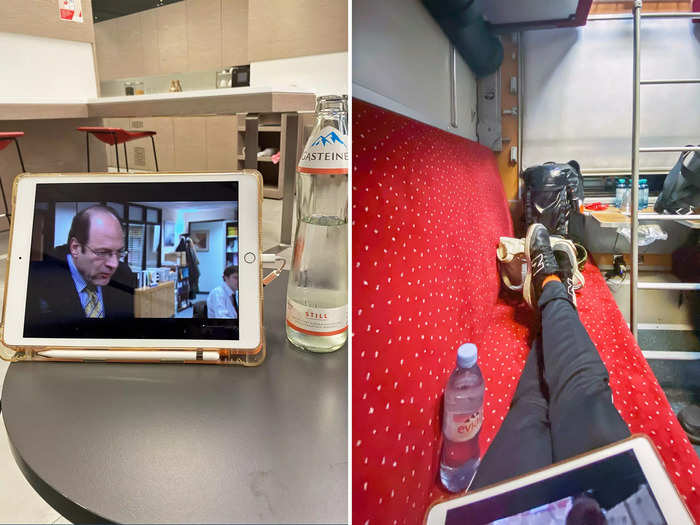
While on my way to each destination, I read about the sights that awaited me in my guidebooks. These books helped me decide how to spend my time in each location and built up my excitement for my upcoming adventures.
During my trip, I downloaded a few episodes of my favorite TV shows to comfort me, which I usually watched around bedtime.
I also used my iPad to draw cover art for my band with the Procreate app, so I spent some time sketching designs for upcoming singles.
I didn't consider how exhausting traveling to my destinations would be, especially on overnight train and plane rides.
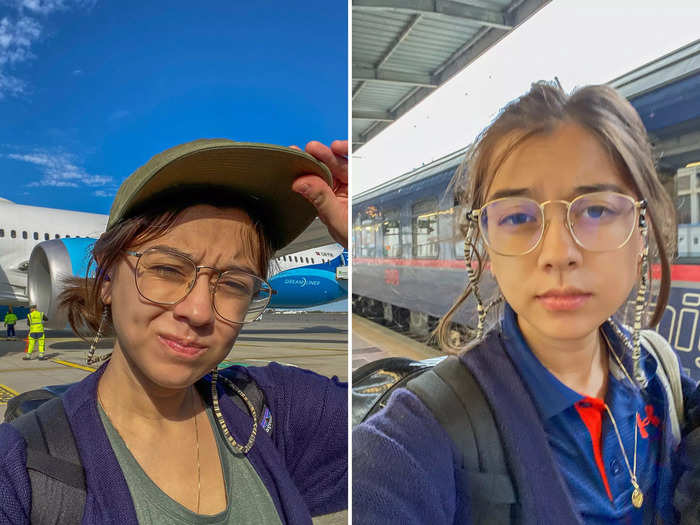
When visiting multiple locations in one trip, I found the travel exhausting.
I started my journey with a red-eye flight to Berlin from my home in NYC. Then, I took overnight trains to Vienna and Venice, Italy, in shared sleeper cabins.
I thought traveling through the night would maximize my time to explore, so I began my trip with a red-eye flight to Berlin. But I arrived in Berlin too exhausted to get the most out of my time there.
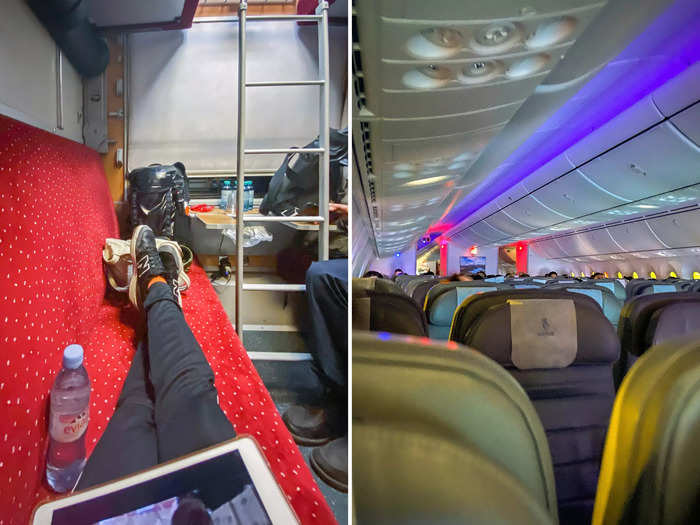
I initially thought overnight transportation would be the best way to travel through Europe to maximize my time exploring during the day.
But for me, sleeping on board flights and train cabins among strangers was challenging, and I arrived at my destinations feeling more exhausted than I had hoped.
I didn't consider how little I'd be able to sleep during these overnight rides. One sleepless night on a train even left me frantically searching for a last-minute hotel booking in Vienna at 7 a.m.
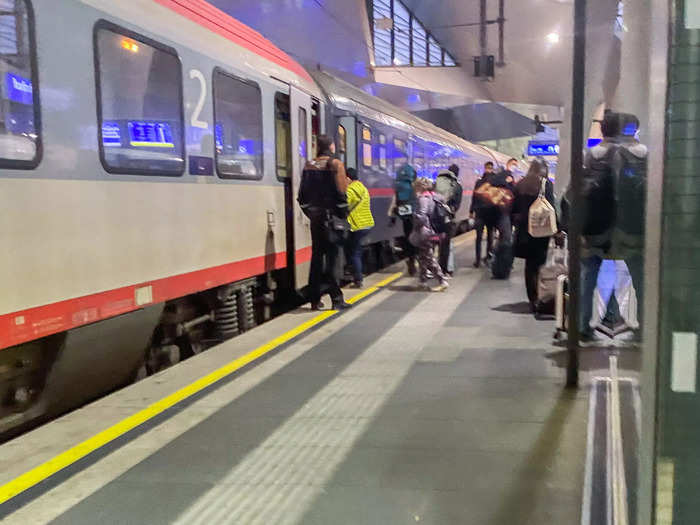
When I arrived in Vienna on an overnight train from Berlin, I planned to spend my morning in Vienna, seeing the sights until I could check in to my hotel at 3 p.m.
But as I stepped off the train, it was apparent that my body needed rest, so I had to figure out where to get it.
I didn't expect to problem-solve as much as I did on my trip, but I found it improved my split-second decision-making skills.
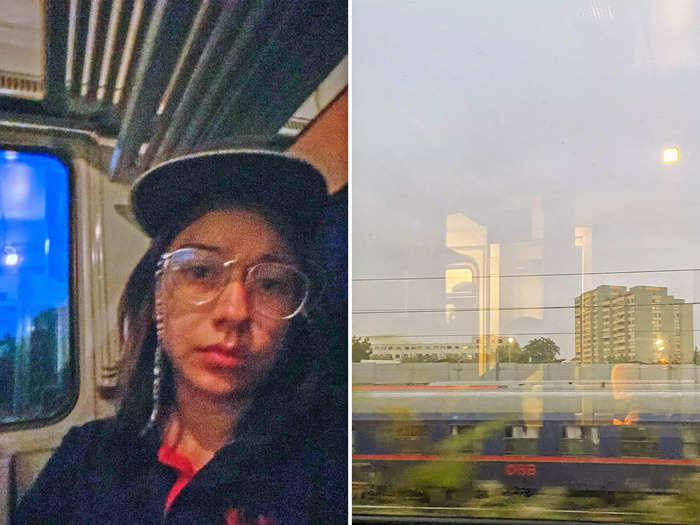
Before going to Europe, I planned everything, from booking accommodations and train rides to mapping out the locations I wanted to visit to avoid problems.
But plans don't always work out, and I had to make quick decisions, like when I arrived in Vienna.
When I finally found a hotel in Vienna, I felt relief and confidence in my traveling capabilities.
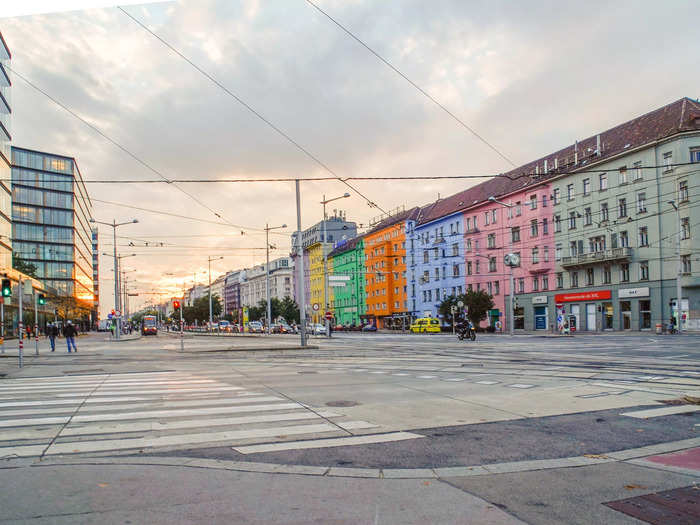
When I got off the train in Vienna, I started going to random hotels to book a room. By the third hotel, I got one.
My trip was full of problems like this, and solving them made me feel more confident in my travel abilities.
I also thought I'd be out exploring all day and night, but my sleepless night made me realize that downtime was just as important.
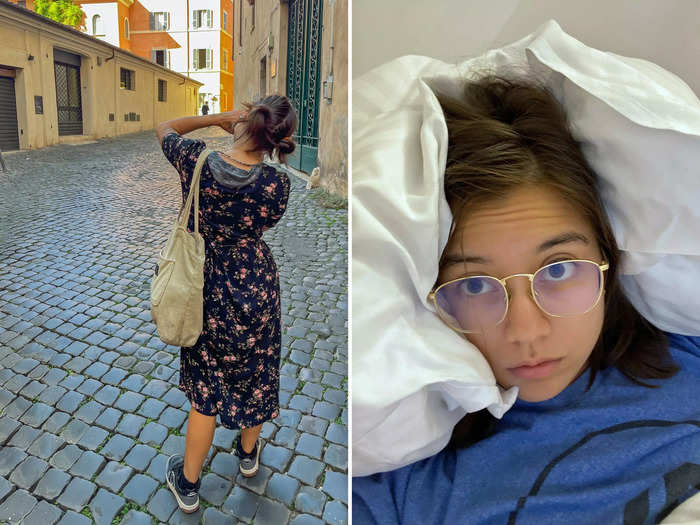
When visiting a new country for just a couple of days, it's easy to pack exploration into every hour without planning for rest. But without downtime, I found travel wasn't as enjoyable.
During the parts of my trip when I felt well-rested, I could appreciate where I was and take in the unique architecture and bustling atmosphere.
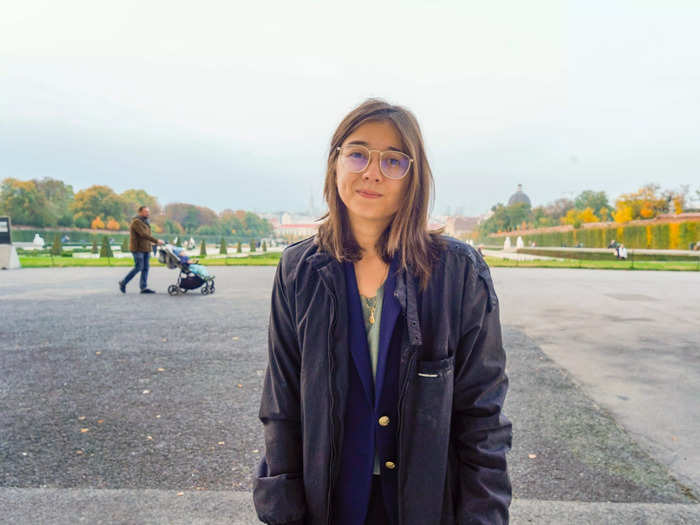
Getting sleep also made me feel more in touch with what my body needed, from staying hydrated to eating enough food.
But a lot of my trip was physically draining, which I didn't expect. On travel days, I had to carry my backpack for a day of exploring before catching a train to my next destination.
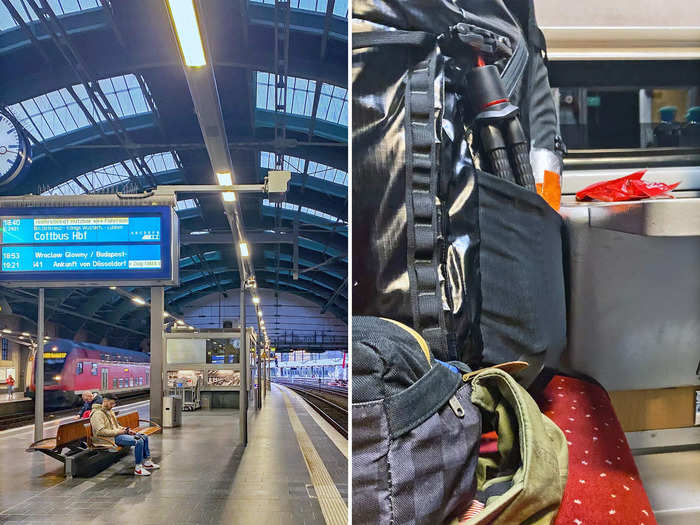
Wearing my backpack while walking for extended periods made my muscles feel sore.
I wasn't used to the weight and size of my backpack, which made it challenging to get around.
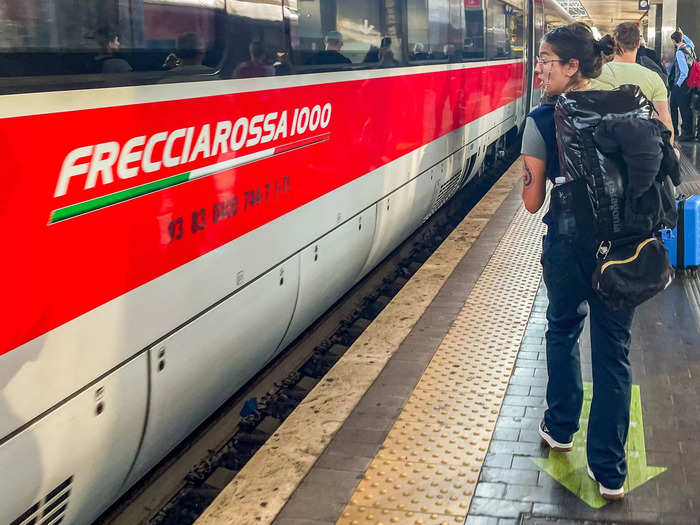
In crowded spaces, I kept forgetting that the backpack made me about a third larger than I typically am.
In these moments, I was surprised to find myself questioning if a backpack really is more convenient than a carry-on suitcase.
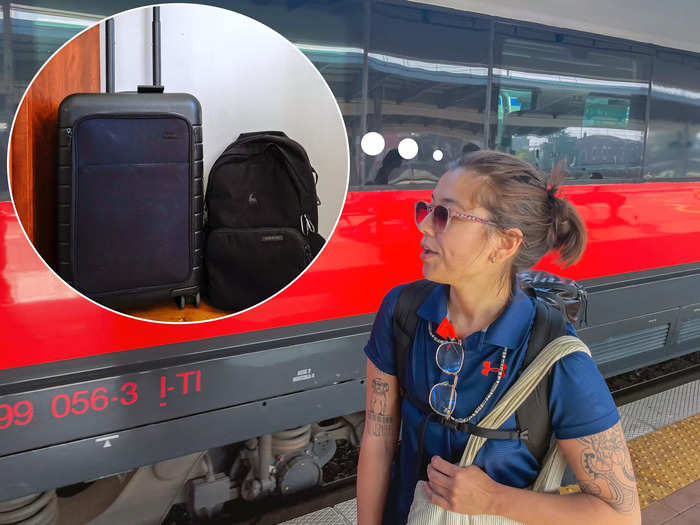
Sure, a carry-on suitcase is larger, but after lugging around my backpack all day, I felt like it could be easier to roll a suitcase around.
Plus, I'd have more outfits to choose from.
Large crowds made having a backpack even harder. I thought traveling in October — the end of shoulder season — would help me avoid this, but I was wrong.
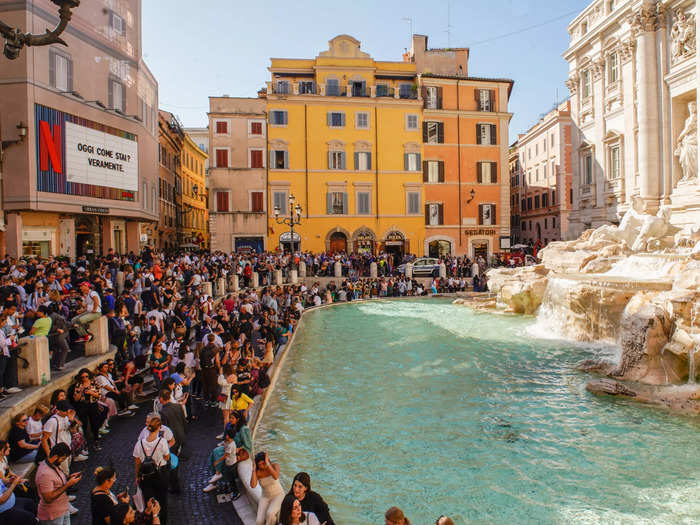
In the Summer of 2022, it felt like everyone I followed on Instagram was in Europe. So, I booked my trip for October to avoid peak tourism season.
But throughout my trip, I stood on my tippy toes to see popular historic sites above rows of heads obscuring my view.
From Rome to Zurich, I trudged through places I didn't expect to be overrun with tourists.
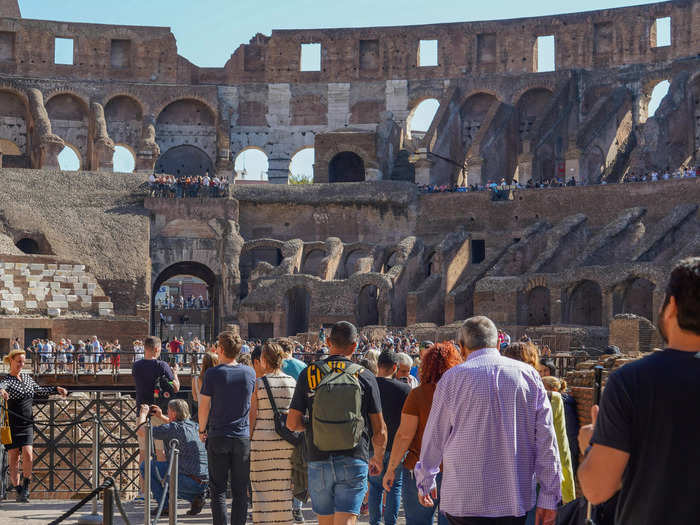
According to SOTC Travel Limited, a travel company based in India, Europe is less crowded with tourists in September and October than in summer.
But in the fall of 2022, traveling during shoulder season became a big trend.
Luckily — and surprisingly — some of the highlights of my trip came from quiet towns outside cities where I booked Airbnbs to save money.
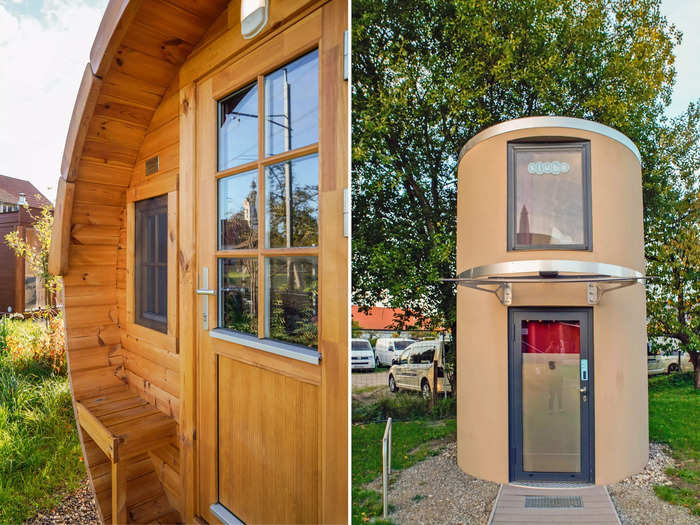
My tiny home hotel in Germany was in a peaceful town with charming cobblestone streets.
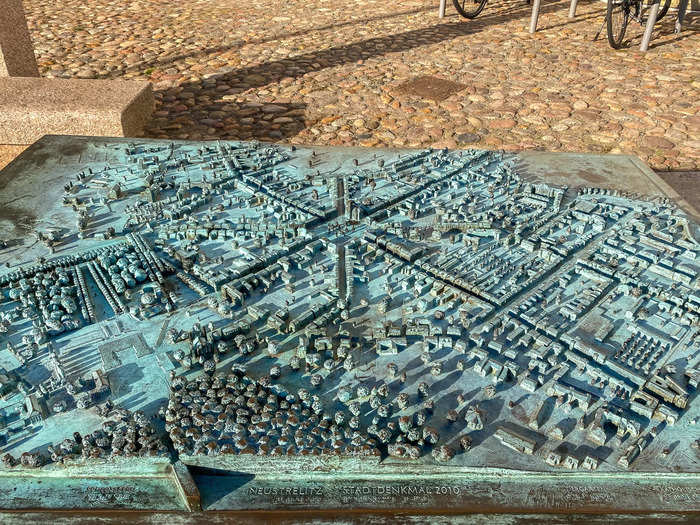
When I visited Berlin, I stayed in a tiny home hotel in Neustrelitz, Germany.
My hotel was a 20-minute walk from the train station, and I enjoyed starting and ending each day with a relaxing walk through town, where I spotted the occasional backpacker among mostly locals.
At the end of my trip, I spent two nights in a village among the rolling hills of Switzerland, where I saw a gorgeous sunset during an unplanned hike. This small village was the best part of my trip.
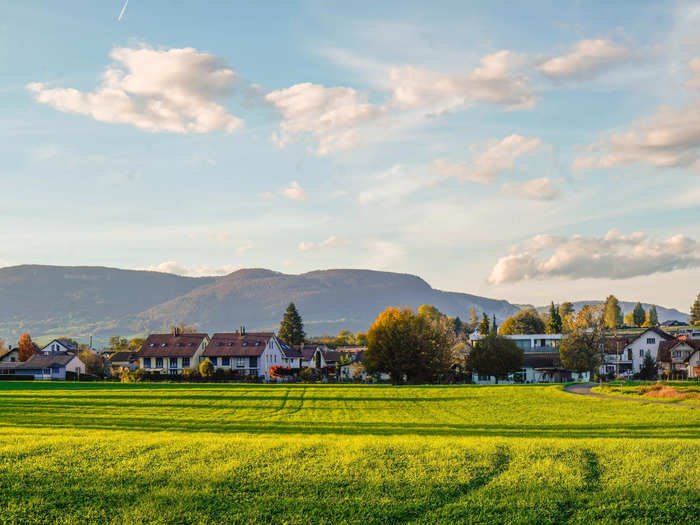
I liked Roggwil, a small village near Zurich, more than almost any other part of Europe I saw.
I couldn't help think that if I hadn't booked this specific Airbnb, which was a 2-minute walk from the town's train station, I would have never seen it.
I expected nothing more than a place to sleep in these towns, so I was pleasantly surprised to find that they felt like hidden gems.
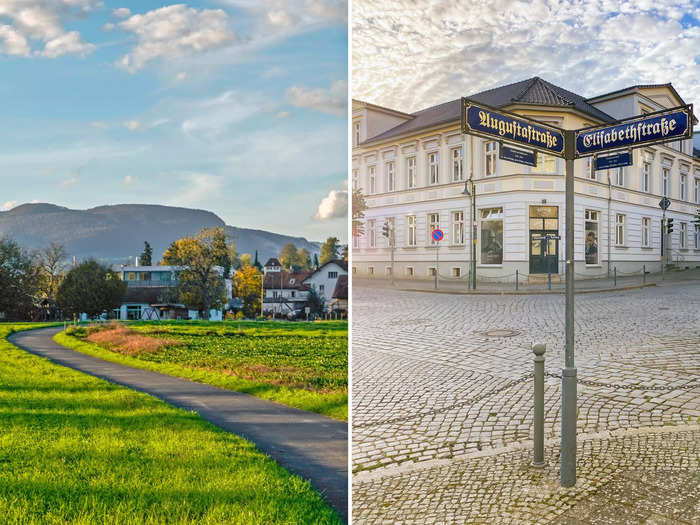
With so many crowds in the cities, I enjoyed experiencing the quiet, slower pace of suburban life while photographing landscapes in less-visited areas of Europe.
I also thought seeing so many new places in a short time would make them blend together in my mind, but each city felt genuinely unique and left me with distinct memories.
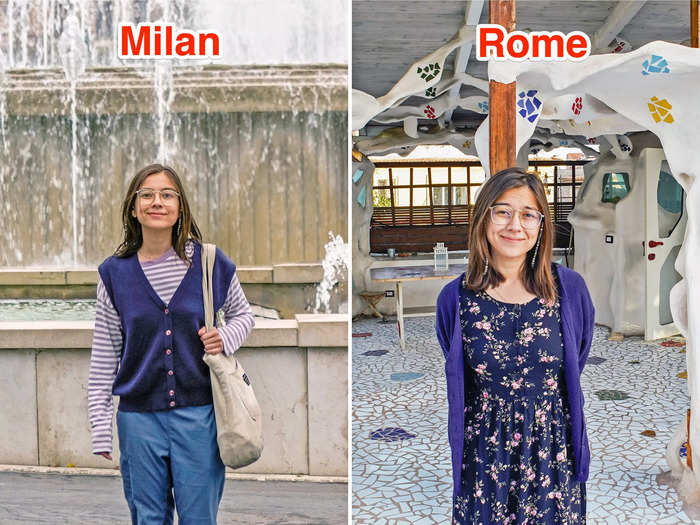
I visited six cities and two small towns in just 14 days, so I thought my memories of my European adventure would start to meld together after my trip concluded.
I'll never forget how alive Berlin felt — with its lush pockets of greenery, dramatic murals, and street performers — or how Vienna's garden mazes and fairy-tale architecture made me feel like royalty.
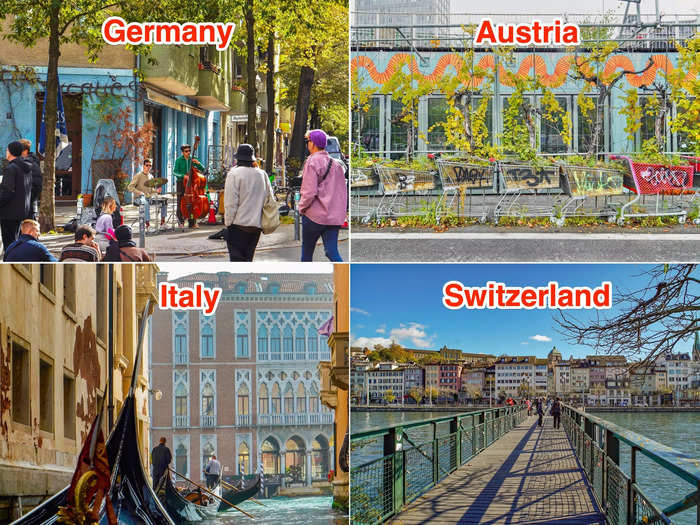
Berlin and Vienna weren't the only destinations to leave lasting impressions.
The canals in Venice also made me feel like I was in a storybook, while Zurich had charming streets with jaw-dropping mountain backdrops.
Ultimately, I was surprised by how much I grew during this journey as an individual and as a travel companion.
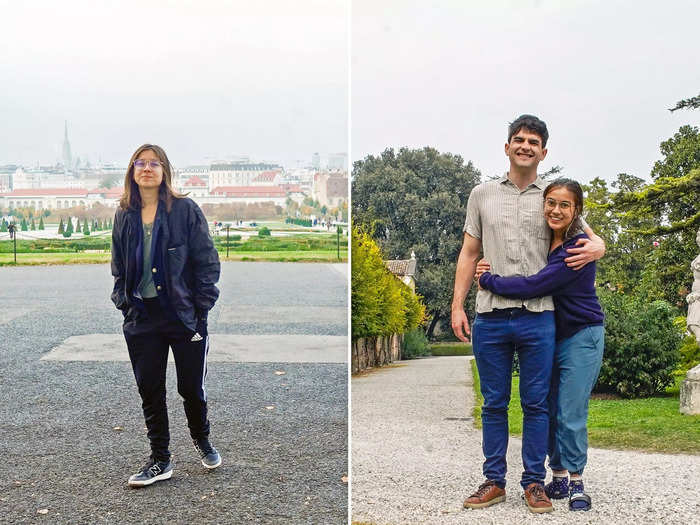
I spent my first week traveling solo, and when my partner joined me for the second week in Italy and Switzerland, I found I had a new appreciation for traveling with a companion.
I learned much more about myself during my solo travels than I anticipated. And when my partner joined me, having someone to share new experiences with helped me explore and problem-solve in a new way.
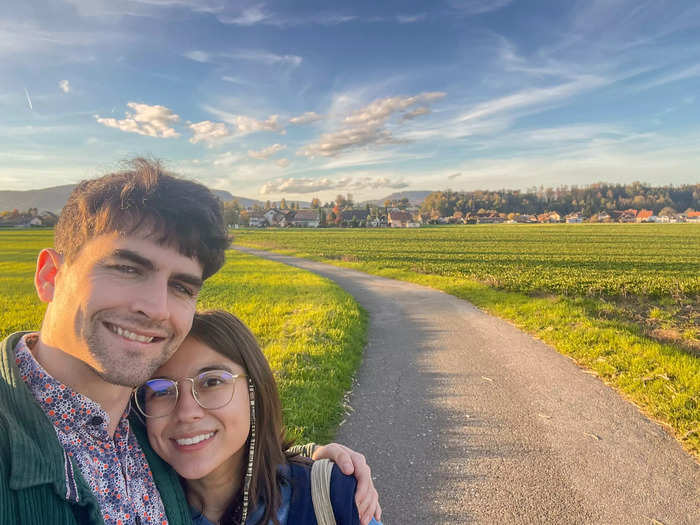
While on my own, I had to endure more uncomfortable situations than I'd had on any previous trip.
Having someone to share memories with when my partner joined me in Italy halfway through the trip taught us how to work together in new places.
While it wasn't a picture-perfect adventure, backpacking through Europe made me realize that you can't plan out every second, and maybe that's a good thing.
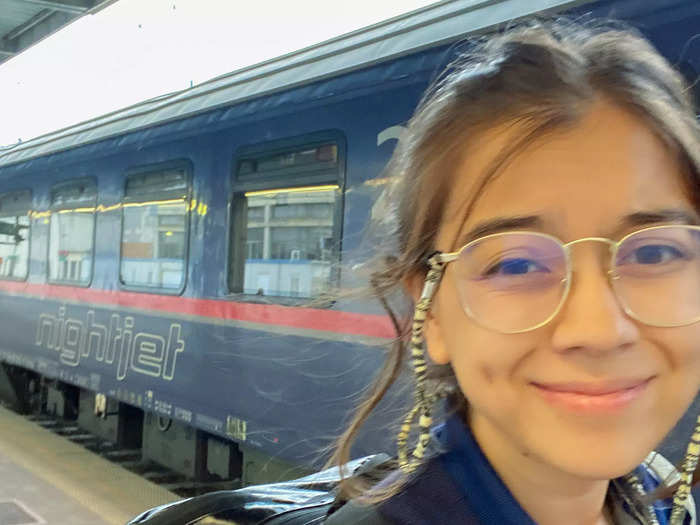
Next time, I'll let go of my expectations and plan to be surprised.
Popular Right Now
Popular Keywords
Advertisement